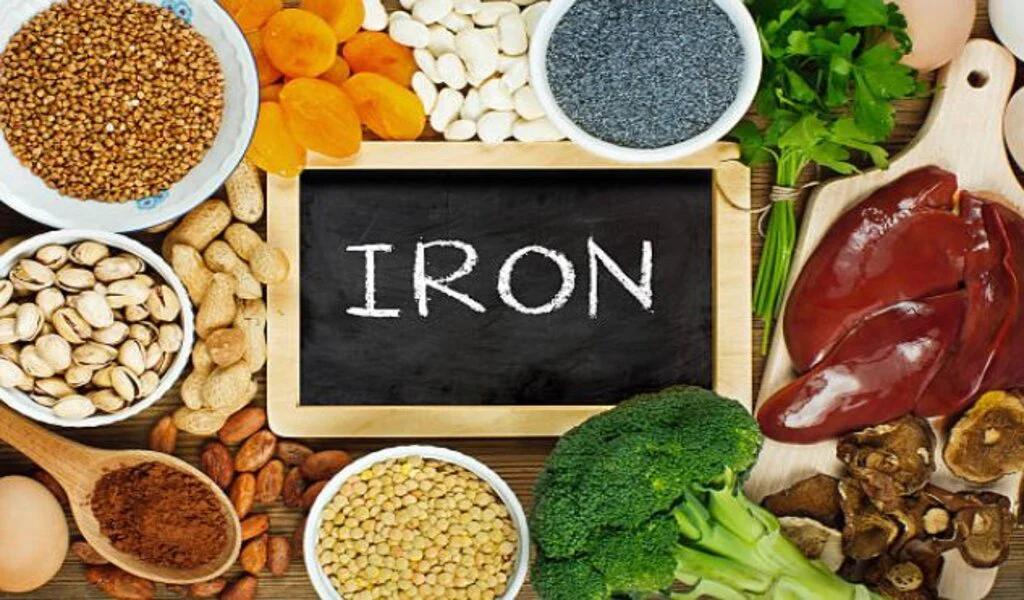- 0086-571-85302990
- sales@greenskybio.com
Benefits and Considerations of Iron Supplements During Your Period
2025-06-16

Each menstrual period leads to blood loss, which can deplete your body’s iron stores. For this reason, healthcare professionals may recommend iron supplements to help restore or maintain healthy iron levels.
Key Benefits of Iron Supplementation
1. Reduced Fatigue and Weakness
Iron is vital for producing hemoglobin, the protein in red blood cells responsible for transporting oxygen throughout your body. Low iron levels lead to less oxygen reaching your brain and muscles, making you feel tired. If menstruation depletes your iron, taking a supplement may boost your energy by improving oxygen and nutrient delivery.
2. Fewer Dizzy Spells
Insufficient iron can reduce oxygen flow in your body, often causing light-headedness or dizziness—symptoms that may intensify during heavy menstrual bleeding. Restoring your iron levels with supplements can help minimize these dizzy spells.
3. Improved Mood and Mental Focus
Iron helps produce brain chemicals such as serotonin and dopamine, which regulate mood, focus, and emotions. Low iron during your cycle may cause brain fog or low mood. Supplementing iron can support mental clarity and emotional well-being by normalizing these levels.
4. Healthier Skin and Nails
Heavy periods may negatively impact your skin and nails, with low iron manifesting as pale skin, brittle nails, or dark circles under the eyes. Since iron aids in oxygen transport to all cells, maintaining normal iron levels can benefit your appearance.
Potential Downsides and Precautions
1. Digestive Issues
Taking iron supplements, especially on an empty stomach, can cause nausea, constipation, dark stools, or gas. Switching iron types, adjusting the dose, or taking it with food may help reduce these effects.
2. Risk of Over-Supplementation
Do not begin iron supplementation without a confirmed deficiency from blood tests. Excess iron intake can result in toxicity, leading to symptoms like joint pain, fatigue, liver damage, or, in severe cases, death.
3. Timing Matters
How and when you take your iron supplement can affect absorption and your comfort. While taking iron with food can reduce stomach upset, certain foods like dairy (high in calcium) can interfere with iron absorption. Instead, take iron with vitamin C-rich foods or drinks (such as orange juice or strawberries) to enhance uptake.
Should You Take Iron Supplements During Your Period?
Consult a healthcare provider to determine if you would benefit from iron supplementation. A blood test is necessary to diagnose iron deficiency accurately.
Testing for Iron Deficiency
Your provider may order one or more of these tests:
- Iron level test: Measures iron circulating in the blood, though results can vary based on several factors.
- Ferritin test: Assesses stored iron in the body and is considered the most reliable indicator of iron status.
- Total iron-binding capacity (TIBC): Shows how well your blood transports iron.
- Transferrin saturation test: Measures how much iron is bound to transferrin, the transport protein in the blood.
Follow your healthcare provider’s recommendations on dosage and supplement type based on your test results.
How Much Iron to Take
The recommended dietary allowance (RDA) for iron is 18 milligrams per day from all sources. If bloodwork confirms a deficiency, your provider may prescribe a higher dose for a short period and monitor your levels over time.
- ▶ Hesperidin
- ▶ Citrus Bioflavonoids
- ▶ Plant Extract
- ▶ lycopene
- ▶ Diosmin
- ▶ Grape seed extract
- ▶ Sea buckthorn Juice Powder
- ▶ Fruit Juice Powder
- ▶ Hops Extract
- ▶ Artichoke Extract
- ▶ Mushroom extract
- ▶ Astaxanthin
- ▶ Green Tea Extract
- ▶ Curcumin
- ▶ Horse Chestnut Extract
- ▶ Other Product
- ▶ Boswellia Serrata Extract
- ▶ Resveratrol
- ▶ Marigold Extract
- ▶ Grape Leaf Extract
- ▶ New Product
- ▶ Aminolevulinic acid
- ▶ Cranberry Extract
- ▶ Red Yeast Rice
- ▶ Red Wine Extract
-
Lily extract
2025-06-16
-
Honeysuckle Pollen
2025-06-16
-
Beta Carotene
2025-06-16
-
Clove Powder
2025-06-16
-
Shikone Extract
2025-06-16
-
Withania Somnifera Extract
2025-06-16
-
Artichoke Extract
2025-06-16
-
White Peony Extract
2025-06-16
-
Coix Seed Extract
2025-06-16
-
Yam Extract
2025-06-16





















